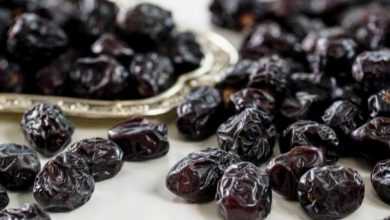Analysis of the hadith telling that “Umar’s (Ra:) female slaves’ breasts were shaking”

Checking the hadith about the female slaves
Abu Bakr Al-Bayhaqi in his book ‘As-Sunanul Kubra’ (2/320) has described it as follows:
وَأَخْبَرَنَا أَبُو الْقَاسِمِ عَبْدُ الرَّحْمَنِ بْنُ عُبَيْدِ اللهِ الْحِرَفِيُّ بِبَغْدَادَ أنبأ عَلِيُّ بْنُ مُحَمَّدِ بْنِ الزُّبَيْرِ الْكُوفِيُّ، ثنا الْحَسَنُ بْنُ عَلِيِّ بْنِ عَفَّانَ، ثنا زَيْدُ بْنُ الْحُبَابِ، عَنْ حَمَّادِ بْنِ سَلَمَةَ قَالَ: حَدَّثَنِي ثُمَامَةُ بْنُ عَبْدِ اللهِ بْنِ أَنَسٍ، عَنْ جَدِّهِ أَنَسِ بْنِ مَالِكٍ قَالَ: ” كُنَّ إِمَاءُ عُمَرَ رَضِيَ اللهُ عَنْهُ يَخْدِمْنَنَا كَاشِفَاتٍ عَنْ شُعُورِهِنَّ تَضْرِبُ ثُدِيُّهُنَّ
…Abul-Qasim Abdullah bin Ubaidullah Al-Hirafi from Baghdad has narrated that Anas bin Malik (may Allah be pleased with him) said: “The slave girls of Umar (may Allah be pleased with him) used to serve us , revealing their hair, beating their breasts.
Many people claim that it is stated here as “تَضْطَرِبُ ثُدِيُّهُنَّ” meaning “their breasts would shake or sway.” However, this is not accurate. The hadith does not mention anything like “تَضْطَرِبُ ثُدِيُّهُنَّ” but rather it states “كَاشِفَاتٍ عَنْ شُعُورِهِنَّ تَضْرِبُ ثُدِيُّهُنَّ,” which clarifies that “their hair would fall on their breasts.” The phrase “their breasts would shake or sway” or any similar wording is not mentioned in this hadith.
Some scholars have mistakenly used the term “تَضْطَرِبُ ثُدِيُّهُنَّ,” which is incorrect. Al-Bayhaqi’s “تَضْرِبُ” is actually “تَضْطَرِبُ” and it is mentioned in As-Sunan Al-Kubra. We can see that Al-Bayhaqi had used the word “تَضْرِبُ” and not “تَضْطَرِبُ”.
In conclusion, the hadith describing the shaking or swaying of their breasts is mentioned in the narration of Yahya bin Salam.
Yahya bin Salam described the mentioned hadith in his “Tafsir” (1/441) using slightly different words:
وَحَدَّثَنِي حَمَّادٌ وَنَصْرُ بْنُ طَرِيفٍ، عَنْ ثُمَامَةَ بْنِ أَنَسِ بْنِ مَالِكٍ، عَنْ أَنَسِ بْنِ مَالِكٍ قَالَ: كُنَّ جَوَارِي عُمَرَ يَخْدُمْنَنَا كَاشِفَاتِ الرُّءُوسِ، تَضْطَرِبُ ثُدِيُّهُنَّ بَادِيَةً خِدَامُهُنَّ
“I was told by Hammad and Nasr bin Tareef, in conjunction, from Thumamah bin Anas bin Malik, from Anas bin Malik (may Allah be pleased with him), who said: The female servants of Umar (may Allah be pleased with him) used to serve us with their heads uncovered. Their breasts would shake as they walked, and their thighs were fully exposed, from the knee down to the ankles, completely visible.”
Ckecking the narrators
Yahya bin Salam
However, Ad-Daraqutni, Ibn ‘Adi, Al-Hakim, Al-Bayhaqi, Ibnul Jawzi, Al-Jahabi, and Ibn Hajar have described Yahya bin Salam as “not reliable” or “making frequent mistakes.” Therefore, as a Rabi’, Yahya bin Salam is not considered reliable.
(See: Al-Ilal by Ad-Daraqutni (5/117), As-Sunan (1862) & (3271), Al-Kamil (9/126), Mukhtasaru Tadhkira by Al-Jahabi (1/528), Fathul Bari (4/243), Ad-Du’afa wal Matrukin (3/196), Al-Khilafiyat (2/430), and explanation of http://hadith.islam-db.com.)
Therefore, the narration of Yahya bin Salam is “Daif” meaning not acceptable in its meaning. On the other hand, the narration mentioned in Al-Bayhaqi’s As-Sunanul Kubra is also not reliable.
Hammam bin Salamah
The chain of narration mentioned in Al-Bayhaqi’s “As-Sunanul Kubra” (2/320) is as follows:
وَأَخْبَرَنَا أَبُو الْقَاسِمِ عَبْدُ الرَّحْمَنِ بْنُ عُبَيْدِ اللهِ الْحِرَفِيُّ بِبَغْدَادَ أنبأ عَلِيُّ بْنُ مُحَمَّدِ بْنِ الزُّبَيْرِ الْكُوفِيُّ، ثنا الْحَسَنُ بْنُ عَلِيِّ بْنِ عَفَّانَ، ثنا زَيْدُ بْنُ الْحُبَابِ، عَنْ حَمَّادِ بْنِ سَلَمَةَ قَالَ: حَدَّثَنِي ثُمَامَةُ بْنُ عَبْدِ اللهِ بْنِ أَنَسٍ، عَنْ جَدِّهِ أَنَسِ بْنِ مَالِكٍ
In this chain, there is a narrator named “Hammam bin Salamah.” Hammam bin Salamah was a a highly regarded and a reliable narrator in his prime. However, as he grew older, his memory and his rentention became weaker and distorted.
The view of the Muhaddis regarding Hammad
In old age, the decline and distortion of Hammad’s auditory abilities were mentioned as a defect among the muhaddithin. The following references highlight this:
Abu Bakr Ahmad Ibn Al-Husayn Al-Bayhaqi
Regarding Hammad, Al-Bayhaqi stated:
هو أحد أئمة المسلمين إلا أنه لما كبر ساء حفظه فلذا تركه البخاري وأما مسلم فاجتهد وأخرج من حديثه عن ثابت ما سمع منه قبل تغيره
“He (Hammad) was among the scholars of the Muslims, but when he grew old, his hearing abilities deteriorated, and that is why Al-Bukhari abandoned him. However, when it comes to the opinion of the Muslim scholars, they made efforts and narrated all the hadiths transmitted from Hammad before his hearing loss.”
–Al-Khilafiyyat (2/50); Tahdhib al-Tahdhib (3/14)
Al-Bayhaqi further stated:
وَحَمَّادٌ سَاءَ حِفْظُهُ فِي آخِرِ عُمُرِهِ، فَالْحُفَّاظُ لَا يَحْتَجُّونَ بِمَا يُخَالِفُ فِيهِ
“Hammad’s memory deteriorated towards the end of his life, so the memorizers (huffaz) do not rely on those hadiths in which Hammad differs.:
– Al-Khilafiyyat (4/285) & As-Sunan al-Kubra (8/46)
Al-Imam Muhammad Bin Ismail Al-Bukhari
Imam al-Bukhari does not rely and ijtihad on the ahadith narrated by Hammad bin Salamah only because, , Hammad’s memory became weak and distorted towards the end of his life, [See: Al-Khilafiyyat (2/50); Tahdhib al-Tahdhib (3/14)]
Imam Muslim Ibn Hajjaj al-Kashiri
He knew that Hammad’s memory had deteriorated in his old age, so he carefully selected narrations through his scholarly judgment, focusing on those narrations that Hammad had conveyed and heard before his memory issues arose. [See: Al-Khilafiyyat (2/50); Tahdhib al-Tahdhib (3/14)]
Ahmad bin Hanbal al-Shaibani al-Yuhli
Abu Bakr al-Bayhaqi quotes Imam Ahmad and says:
‘قَالَ الشَّيْخُ أَحْمَدُ: حَمَّادُ بْنُ سَلَمَةَ سَاءَ حِفْظُهُ فِي آخِرِ عُمْرِهِ. فَلَا يُقْبَلُ مِنْهُ مَا يُخَالِفُهُ فِيهِ الْحُفَّاظُ’
“Shaykh Ahmad said, ‘Hammad bin Salamah’s memory deteriorated towards the end of his life, so we do not accept from him anything that contradicts the narrations preserved by reliable huffaz.'”
Therefore, due to the decline in Hammad bin Salamah’s memory in his old age, the scholars do not rely on the hadiths narrated by him, which exhibit discrepancies. [See: Ma’refatus Sunan Wal Athar (2/212)]
Abu-Hatem Muhammad bin Idris ibn al-Munzir ar-Razi
Abu Hatim ar-Ra’i stated:
وكان حماد ساء حفظه في آخر عمره
“Hamad’s memory deteriorated towards the end of his life.”– Al-Jarh wa’l-Ta’dil (9/66)
Abu Fadl Ahmad Ibn Hajar al-Asqalani:
Ibn Hajar al-Asqalani said:
حماد بن سلمة بن دينار البصري، أبو سلمة، ثقة عابد، أثبت الناس في ثابت وتغير حفظه بأَخَرَةٍ
“Hamad bin Salamah bin Dinar al-Basri, known as Abu Salamah, was trustworthy, a worshipper, and considered one of the most reliable people in preserving and transmitting narrations, despite the decline in his memory towards the end of his life.”
– Takrib al-Tahdhib (Rabi’/1499)
Ya’qub ad-Din Abu al-Barakat Ibn al-Kiyal al-Khatib
Ibn al-Kiyal mentioned Hamad in his book “Al-Kawakibun Nayyirat fi Ma’rifat Man Ikhtalata minar-Ruwat” (p. 460).
Burhan ad-Din Abu al-Wafa Sabat Ibn al-Ajami
Sabat Ibn al-Ajami mentioned Hamad in his book “Al-Ighatibat Biman Rumiya bil-Ikhtilat” (Rabi’/28).
Conslusion
In this context, no one other than Hammad narrated the mentioned hadith. While Yahya’s narration includes Nasr bin Tarif narrating it along with Hammad but did mutaba’at[1]If one of the rabies in the isnad is considered as narrated only by him, if it is found that another rabbi has narrated the hadith in place of this rabbi in another isnad, then it is called ‘Mutaba’ah’., on the other hand, Nasr’s narration is not considered even reliable as he was known to fabricate hadiths. Since Hammad’s memory deteriorated in old age and no one else narrated this hadith except him, this hadith that mentions Hammad is not considered reliable.
Original post: উমার (রা) এর দাসিদের চুল উক্ত দাসিদের স্তনে বাড়ি খাওয়া সক্রান্ত হাদিসটির গ্রহনযোগ্যতা যাচাই। [Archived, May 22, 2023]
Translated into English by: Fahim Khan
Footnotes
| ⇧1 | If one of the rabies in the isnad is considered as narrated only by him, if it is found that another rabbi has narrated the hadith in place of this rabbi in another isnad, then it is called ‘Mutaba’ah’. |
|---|




